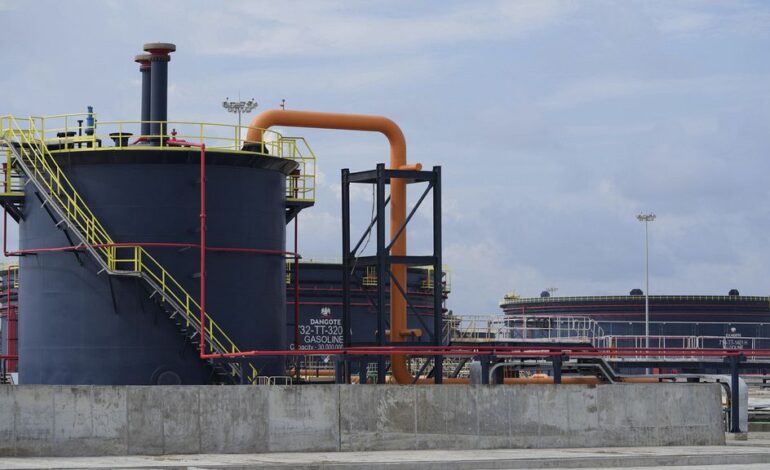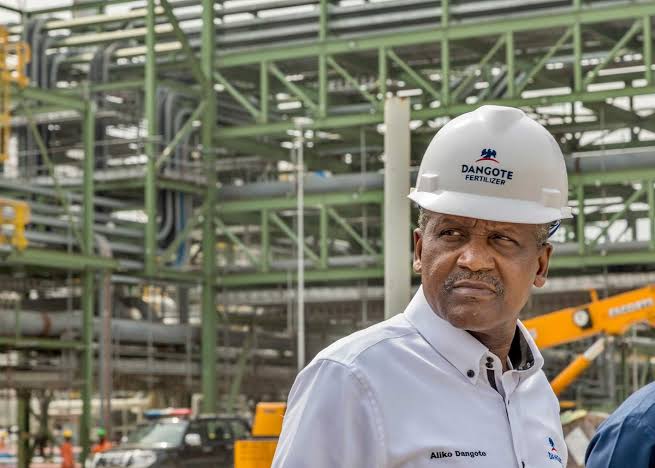
Faith Nyasuguta
Africa’s largest oil refinery has commenced production in Nigeria, marking a significant milestone in the nation’s bid to enhance its refining capacity and reduce dependence on imported petroleum products.
The $19 billion Dangote Petroleum Refinery, capable of producing 650,000 barrels per day, has initiated the production of diesel and aviation fuel, according to an announcement from the Dangote Petroleum Refinery company.
Nigeria, despite being a leading oil producer in Africa, has long relied on importing refined petroleum products due to challenges in its oil and natural gas sector.
The country’s state-run refineries have struggled with operational inefficiencies, often operating well below their capacity due to inadequate maintenance.
The Dangote refinery, as Nigeria’s first privately owned oil refinery, is hailed as a “game-changer” for the country, according to the company.
While it may not singularly solve Nigeria’s energy crisis, it is seen as a pivotal step toward revitalizing the sector, moving the nation from a major importer of refined petroleum products to achieving self-reliance in domestic refining capacity.
Owned by Aliko Dangote, Africa’s richest man and Nigerian industrialist, the Dangote refinery is positioned on the outskirts of Lagos, Nigeria’s economic hub. Described as the world’s largest single-train refinery, it operates in conjunction with a fertilizer plant.
The refinery is anticipated to satisfy 100% of Nigeria’s requirements for gasoline, diesel, kerosene, and aviation jet fuel at full production capacity, as per Dangote’s statements.
Additionally, around 40% of the oil products produced will be earmarked for export, contributing to Nigeria’s economic standing in the global market.

Despite the promising start, analysts caution that it could take months before the refinery reaches its full capacity. The plant has received approximately 6 million barrels of crude from Nigeria’s state oil firm, NNPC Limited, to initiate operations.
The impact of the refinery on consumer gas prices remains uncertain, as it hinges on factors like crude costs, government interventions such as subsidies, and the local currency’s exchange rate against the dollar.
The Dangote Petroleum Refinery represents a crucial stride in Nigeria’s quest for energy self-sufficiency and economic growth.
As it gradually reaches its full operational potential, the refinery is poised to play a pivotal role in reshaping the dynamics of Nigeria’s energy sector and contributing to the nation’s economic resilience.
RELATED:




